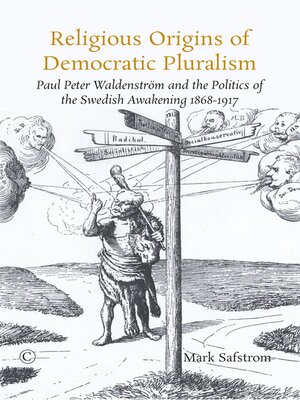Religious Origins of Democratic Pluralism
ebook ∣ Paul Peter Waldenstrom and the Politics of the Swedish Awakening 1868-1917
By Mark Safstrom

Sign up to save your library
With an OverDrive account, you can save your favorite libraries for at-a-glance information about availability. Find out more about OverDrive accounts.
Find this title in Libby, the library reading app by OverDrive.



Search for a digital library with this title
Title found at these libraries:
| Library Name | Distance |
|---|---|
| Loading... |
The Religious Origins of Democratic Pluralism focuses on explaining one of the riddles that fascinated historians and political scientists for much of the twentieth century, namely, the origin and development of Swedish social democracy. While othercountries in Europe experienced dramatic swings between radical and conservative political parties, which resulted in tragic experiments with totalitarian regimes, Sweden, by contrast, miraculously seemed to avoid these extremes, and instead maintained space for democratic discussion and even dissent. This peaceful transformation was facilitated by political actors who crafted the discourse of their debates in such a way that pluralism came to be valued as an ethical good and then vigorously defended. This study examines the decades leading up to the emergence of social democracy in Sweden, and in particular, the career of one prominent politician, Paul Peter Waldenstrom (1838-1917). Waldenstrom was a clergyman, revival preacher, educator,author, and newspaper editor, whose political career began in 1868 with his participation in the Church Assembly of the Church of Sweden. His role expanded during his years of service in the Swedish parliament, the Riksdag, from 1884-1905. This study places Waldenstrom in dialogue with his contemporaries and opponents as a means of identifying how the theological values and priorities of the religious awakening were articulated in the public sphere and contributed to the development of a new political order.







